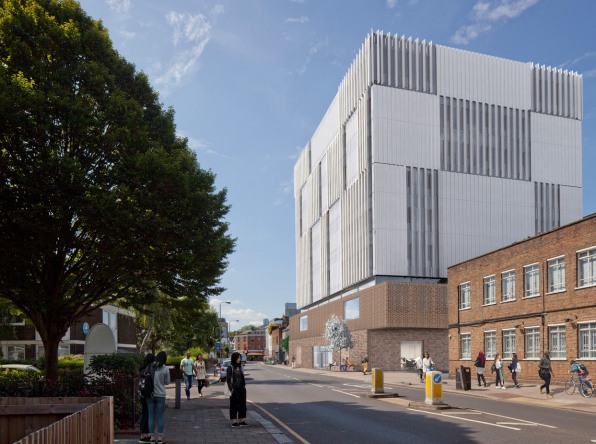The Royal College of Art is expanding its curriculum to include more science and technology. Expect other schools to do the same.
One of the world’s most prestigious design and art schools, the Royal College of Art in London, has announced a significant expansion and new plans to integrate science and technology deeper into its curriculum. That means that the storied school’s students won’t just be sketching and modeling–they’ll also be building robots and coding machine learning algorithms.
The college marked the announcement with a video created by RCA alum Ridley Scott, which looked inside the studios of other famed alumni, including Tracey Emin, David Hockney, and Thomas Heatherwick. The U.K. government has contributed $71 million to funding the strategic plan.
RCA already has a strong design engineering program, but this new investment sends a clear message that today’s designers must be trained to tackle large, interdisciplinary problems. The world is too complex and interconnected for designers to not be versed in a variety of disciplines, from traditional, craft-based skills to the science and technology that currently power much of our daily lives. RCA plans to add nontraditional programs like Environmental Architecture, a year-long masters that focuses on the city from a sustainability perspective, and Digital Direction, another year-long program that concentrates on digital storytelling in the creative economy.

To support the college’s five-year-plan–called GenerationRCA–the RCA’s campus will expand with a new building designed by the Swiss architecture firm Herzog & de Meuron, located across the street from its existing buildings in London’s Battersea neighborhood. The building, which will contain studios, workshops, labs, and research facilities as well as a large hanger-type space for events and installations, is slated to open in the fall of 2021. RCA also announced that it will fund a scholarship endowment that will be built up over decades to fund the education of as many students as possible, regardless of their financial situation.

“The launch of GenerationRCA marks a real watershed in the Royal College of Art’s 182-year history,” said vice chancellor Paul Thompson in a statement. “Founded in response to the first Industrial Revolution, today the RCA stands as the vanguard of a new era in art and design, which promises breakthroughs in robotics, autonomous vehicles, nanotechnology, and artificial intelligence.”
Such interdisciplinary programs are not completely absent from the academic world. Prominent tech and science schools like MIT and Carnegie Mellon have embraced (and now excel at) design. But it’s rarer to see a traditional art and design school like RCA adopt science and technology as a core focus. Whatever the reason, RCA is wise to make the investment: As technology infiltrates every element of life, the artists and designers who integrate it into their training will no doubt be more in demand than those who do not.
–
This article first appeared in www.fastcompany.com
Seeking to build and grow your brand using the force of consumer insight, strategic foresight, creative disruption and technology prowess? Talk to us at +9714 3867728 or mail: info@groupisd.com or visit www.groupisd.com


![Without Politeness, Taeyoung Choi. [Photo: courtesy Royal College of Art]](https://images.fastcompany.net/image/upload/w_562)